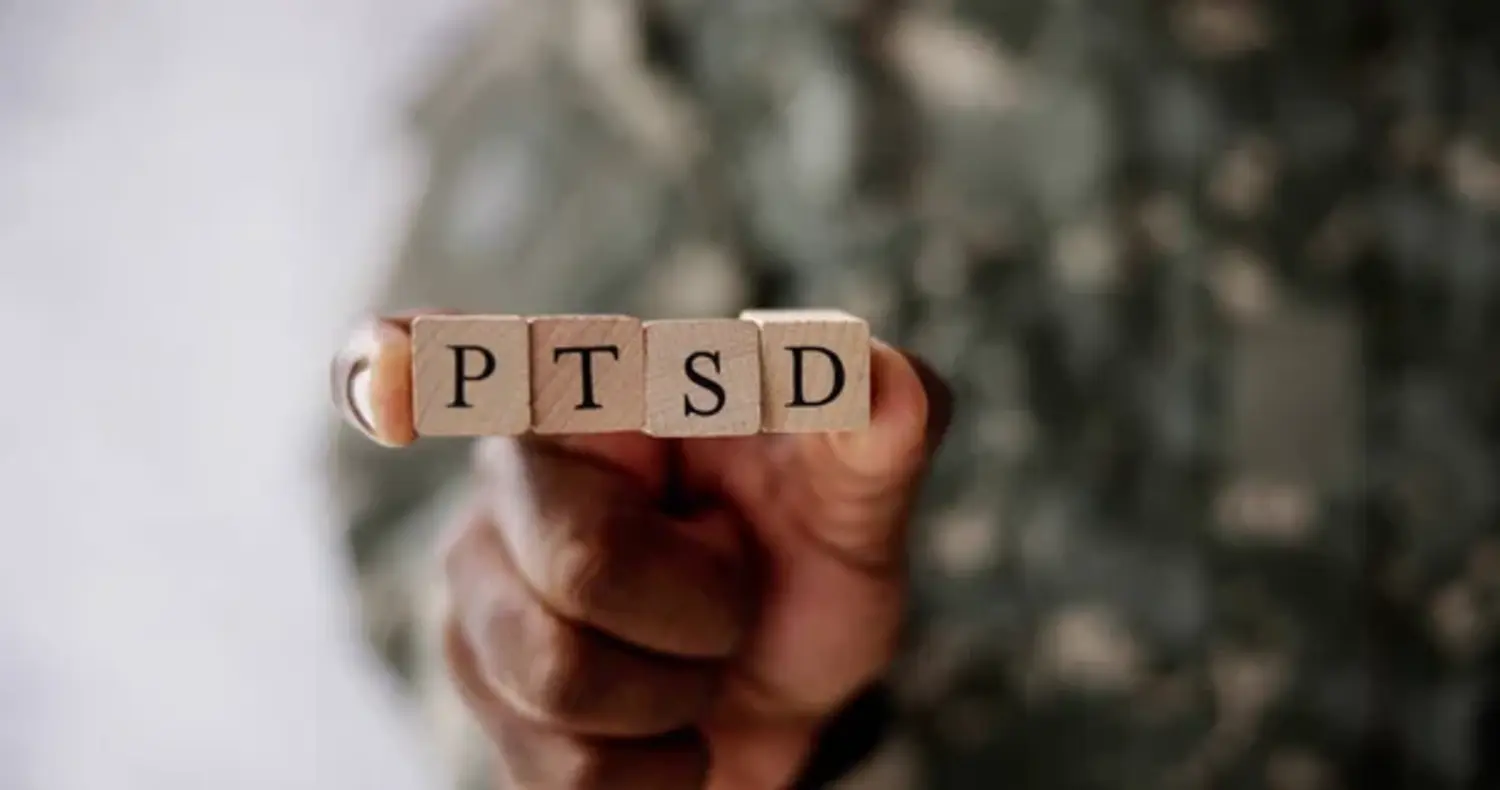Do men cry when they are in love? The question lingers in the air like a captivating melody, weaving its way through the corridors of our thoughts.
In a world where masculinity has long been associated with unyielding strength and unwavering composure, the notion of tears and vulnerability may seem like a mirage in the desert of emotions.
Yet, like a hidden oasis, the truth awaits those willing to venture into the heart’s unexplored terrain. It is in these intimate moments, beneath the moon’s tender gaze, and amidst the symphony of beating hearts, that the enigmatic dance of love takes center stage.
For when two souls collide and intertwine, barriers crumble, and emotions flow like a river breaking free from its confines. So, do men cry when they are in love?
Let us unshackle the preconceived notions and explore the depths of human emotion, for within the tears that fall like precious jewels lies a profound revelation that may just redefine what it truly means to love.
Do men cry when they are in love? Come, let us unravel the secrets of the heart together and discover the beauty that lies within the tears of love’s embrace.

Do Men Cry When They Are In Love?
At the intersection of love and masculinity, an age-old question continues to stir the hearts and minds of many: do men cry when they are in love?
This enigmatic inquiry has long challenged societal norms, beckoning us to explore the intricate nuances of human emotions. Beneath the facade of stoicism and strength, lies a realm of vulnerability waiting to be unveiled.
In this captivating exploration, we embark on a journey to decipher the true language of the heart. As the moon pulls the tides, so too does love tug at the strings of the soul, evoking emotions that know no boundaries.
Do men cry when they are in love? Let us embark on this extraordinary odyssey, as we seek to unravel the timeless enigma that dwells in the depths of the human heart.
The Importance Of Emotional Expression In Relationships
“Do Men Cry When They Are In Love?” The question itself embodies a profound exploration of the complexities of human emotion and societal expectations.
For centuries, traditional notions of masculinity have perpetuated the idea that men should suppress their feelings, remaining stoic and unyielding in the face of vulnerability.
However, the reality is far more nuanced. Love, a force that knows no gender, permeates the hearts of individuals regardless of their identity.
It is essential to recognize that emotional expression is not a weakness but rather a strength that fosters deep connections and understanding within relationships. Love is a kaleidoscope of emotions, and tears often become the colors that paint the canvas of intimacy.
Shedding tears in the presence of a loved one is an act of profound trust, allowing oneself to be seen in the rawest form, unguarded and unfiltered.
As we endeavor to break down these societal barriers, we come to understand that tears are not signs of fragility, but a testament to the courage and authenticity of a heart in love.
The importance of emotional expression in relationships cannot be overstated. When both partners feel safe and encouraged to share their feelings openly, a powerful bond forms, one that transcends words and permeates the very essence of love.
Emotional vulnerability serves as the cornerstone of empathy and compassion, allowing couples to navigate the peaks and valleys of life together with unwavering support.
In moments of joy, tears can manifest as a celebration of love’s exuberance, glistening reflections of happiness and contentment.
Conversely, during times of sadness or strife, tears become the testament of an empathetic heart, extending a hand of comfort and understanding. By embracing the full spectrum of emotions, couples forge an unbreakable connection that stands firm in the face of adversity.

The Stigma Around Men Crying
“Do Men Cry When They Are In Love?” is an inquiry that delves not only into the realm of emotions but also unearths the deep-rooted stigma surrounding men expressing vulnerability through tears.
Throughout history, societal expectations have constructed rigid frameworks of masculinity, where emotional suppression and stoicism are hailed as signs of strength.
As a result, the act of crying has often been dismissed as a weakness, primarily associated with femininity and therefore discouraged in men.
This prevailing stigma surrounding men crying can be traced back to cultural norms and stereotypes that perpetuate the belief that displaying emotions equates to a loss of control or power.
Men are often conditioned to believe that they must conform to an unyielding façade, bottling up their feelings and denying themselves the catharsis that comes with emotional release.
The stigma’s roots run deep, embedded in childhood upbringing, media representation, and societal expectations.
Young boys are often taught early on that “boys don’t cry” and are discouraged from expressing their feelings openly. As they grow, these messages solidify, influencing their behavior and shaping their understanding of masculinity.
The media often reinforces these stereotypes, portraying male characters as emotionally distant and resilient, while the emotionally expressive ones may be portrayed as weak or inadequate.
The Benefits Of Crying In Relationships
One of the most significant benefits of crying in relationships is the creation of emotional intimacy. When a man allows himself to be vulnerable and cries in front of his partner, it builds a deep sense of trust and connection.
In turn, this emotional intimacy strengthens the bond between partners, deepening their understanding of each other’s innermost feelings and desires.
Crying also acts as a powerful release valve for pent-up emotions. Love, like life, can be a rollercoaster of emotions, with moments of immense joy and occasional challenges.
Moreover, crying in relationships fosters empathy and compassion. When one partner cries, the other is presented with an opportunity to empathize, stepping into their shoes to understand their emotions fully.
Crying also serves as a powerful communication tool. Sometimes, words may fall short of expressing the depth of one’s emotions, but tears can convey volumes.
Furthermore, crying in relationships challenges traditional gender roles and stereotypes. It defies the notion that men must conform to stoicism and emotional suppression.
Lastly, crying together can deepen the sense of emotional intimacy and create shared emotional experiences. It reinforces the notion that both partners are in this journey of love and life together, navigating the highs and lows as a unified team.
This shared vulnerability can forge an unbreakable bond, creating cherished memories that contribute to the lasting foundation of a loving relationship.

Why Do Men Get Embarrassed When Crying In A Relationship?
“Do Men Cry When They Are In Love?” This thought-provoking question unravels a complex web of emotions, but it also exposes the deeply ingrained social constructs that contribute to the embarrassment men may feel when shedding tears in a relationship.
The societal expectations surrounding masculinity have long propagated the idea that men should be strong, stoic, and in control of their emotions. Consequently, crying has often been associated with vulnerability, weakness, and a perceived loss of power.
From a young age, boys are conditioned to adhere to these rigid norms, often hearing phrases like “Boys don’t cry” or “Be a man” when they show signs of emotion.
As they grow older, these messages become deeply ingrained in their psyche, influencing their behavior and reactions.
When this conditioning meets the vulnerability that accompanies love, men may find themselves grappling with feelings of embarrassment or shame when tears emerge in the presence of their partner.
In a relationship, men may fear that their emotional display will be met with judgment or rejection. They might worry that crying will undermine their perceived strength and make them appear inadequate in the eyes of their partner.
This fear of vulnerability can lead to emotional suppression, causing men to withdraw emotionally and distance themselves from their partners, hindering the development of emotional intimacy.
Moreover, men may feel embarrassed about crying because it goes against the conventional narrative of what it means to be a man.
Society often portrays men as emotionally distant and unaffected, equating vulnerability with weakness.
As a result, men may internalize the belief that expressing emotions openly makes them less masculine, and this perceived loss of masculinity can cause embarrassment and self-doubt.
6 Likely Reasons Men Might Cry
“Do Men Cry When They Are In Love?” This captivating question invites us to explore the intricate tapestry of emotions that weave through the hearts of men when they experience the profound depths of love.
While societal norms have often restrained emotional expression in men, the reality is that love transcends gender, and men, too, are susceptible to the powerful sway of their feelings. Here are six likely reasons why men might cry when they are in love:
Overwhelming Joy
Love has the uncanny ability to fill one’s heart to the brim with joy and euphoria. When a man finds himself immersed in the enchanting currents of love, the sheer intensity of his emotions may lead to tears of happiness.
Each tear becomes a testament to the blissful moments shared with his beloved, a poetic expression of the joy that permeates his soul.
Profound Connection
Love binds two souls together in an indissoluble bond. As two individuals intertwine their lives and become one, a profound sense of connection arises.
When this connection reaches its zenith, it can evoke tears of awe and wonder, as the man realizes the depth of his feelings and the irrevocable attachment he shares with his partner.
Empathy And Compassion
Love opens the floodgates of empathy, enabling men to deeply feel their partner’s joys and sorrows. Witnessing their partner experience pain or distress can bring about tears as an expression of compassion.
These tears represent the genuine desire to share the burden and support their beloved unconditionally.
Fear Of Loss
Love, though a source of immense joy, can also awaken the fear of loss. The prospect of losing someone so dear and integral to one’s life can be overwhelming.
As a result, men might cry when confronted with this fear, seeking solace and reassurance in their partner’s arms.
Emotional Release
Love can stir a plethora of emotions, from happiness and excitement to vulnerability and even sadness. Crying becomes a natural emotional release, allowing men to purge themselves of pent-up feelings and find catharsis in their partner’s presence.
Vulnerability And Trust
Crying in front of a partner requires a level of vulnerability and trust that surpasses societal expectations. When men cry in love, it signifies a deep sense of trust and safety in their relationship, knowing that their partner will accept and support them unconditionally.
The Mental Health Issues That Could Make Men Cry
“Do Men Cry When They Are In Love?” The answer to this question is a multifaceted exploration of emotions and mental health.
While tears of joy and love are a natural response to deep affection, it’s essential to recognize that men, like anyone else, can cry for various reasons related to mental health challenges.
Society’s expectations of male emotional stoicism have, for too long, obscured the truth that emotional vulnerability is not a sign of weakness but a testament to human resilience and the need for support and understanding.

Depression
Depression, a relentless and often misunderstood mental health issue, can cast a profound shadow over men’s emotional landscape, leading to tears as a poignant expression of their inner struggles.
As they grapple with overwhelming sadness, hopelessness, and emotional pain, tears become a natural outlet for the weight they carry within. The emptiness that pervades their hearts can be overwhelming, causing them to shed tears of sorrow and vulnerability.
Depression can also manifest as emotional numbness, making it difficult for men to connect with their feelings, yet tears may find their way as a powerful release.
In the face of societal expectations of stoicism, tears reveal the courage and strength it takes for men to confront their emotions openly.
Seeking help and support is a transformative act, as therapy and a compassionate support system can illuminate the path toward healing and rediscovering emotional well-being amidst the darkness of depression.
Anxiety
Anxiety, a common mental health issue that knows no gender boundaries, can manifest in ways that lead men to shed tears.
When anxiety takes hold, the overwhelming feelings of fear, worry, and tension can become too much to bear, finding an outlet in tears as a natural release of emotional pressure.
Men may cry when confronted with the burden of excessive stress and the physical and psychological symptoms that often accompany anxiety.
These tears reflect the emotional turmoil within, as anxiety impacts their ability to cope with uncertainty and future events.
Seeking support and understanding, tears become a poignant expression of the emotional struggles that men face, breaking down the barriers of societal expectations and reaffirming that vulnerability is a sign of strength when it comes to managing anxiety and seeking emotional connection.
Post-Traumatic Stress Disorder (PTSD)
Post-Traumatic Stress Disorder (PTSD), a haunting mental health condition, can lead men to shed tears as an emotional response to the lingering effects of trauma.
Men with PTSD may find themselves caught in the grasp of intrusive memories and distressing flashbacks, tearing open the wounds of past experiences.
The weight of emotional overwhelm can become too much to bear, as nightmares and hyperarousal plague their waking hours. Even amid emotional numbing, tears may still flow as an outlet for the pain and disconnection that this condition brings.
Triggers abound, making avoidance a daunting task, and tears may serve as a poignant expression of the ongoing struggle to find solace amidst emotional turmoil.
Seeking help for PTSD is an act of strength, and through therapy and a supportive environment, men can find healing and resilience as they navigate the path to recovery.

Bipolar Disorder
Bipolar Disorder, a rollercoaster of emotions, can lead men to shed tears as they traverse the extreme highs and lows of this complex mental health condition.
During depressive episodes, tears may flow as an expression of profound sadness, hopelessness, and emotional desolation. The weight of the darkness they endure becomes apparent in their tear-stained cheeks.
Conversely, during manic episodes, men may cry due to the overwhelming intensity of emotions and impulsivity that come with this phase.
The heightened sense of joy and excitement may lead to tears of euphoria. The unpredictable nature of bipolar disorder can also cause tears as a result of the emotional whirlwind they face.
Seeking professional help and adhering to a treatment plan that includes therapy and medication are vital in stabilizing the emotional turbulence and finding a sense of balance amidst the chaos.
A supportive network of loved ones can play a pivotal role in helping men navigate the complexities of bipolar disorder, offering understanding and empathy in moments of vulnerability.
Through proactive management and unwavering support, men with bipolar disorder can learn to navigate their emotions with resilience, fostering emotional well-being and embracing the entirety of their emotional journey.
Borderline Personality Disorder (BPD)
Borderline Personality Disorder (BPD), a tumultuous emotional landscape, can lead men to shed tears as they grapple with the intense and unstable emotions that define this complex mental health condition.
Tears may flow as an expression of the fear of abandonment that looms large in their hearts, causing emotional turbulence in their relationships.
The deep-seated need for validation and a struggle with self-worth can also evoke tears, representing the inner battle they face to find acceptance and love within themselves.
The emotional intensity and impulsivity that accompany BPD may lead to tears as a result of overwhelming feelings that are difficult to regulate.
Seeking help through therapy, such as dialectical behavior therapy (DBT), can empower men with BPD to develop healthier coping mechanisms and emotional regulation skills.
A supportive environment that embraces emotional vulnerability can play a crucial role in helping men with BPD navigate the complexities of their emotions, fostering a sense of stability and a deeper understanding of their authentic selves.
Through self-awareness and self-compassion, men with BPD can rewrite the narrative of their emotional journey, transforming tears into a testament of resilience and growth.
Conclusion
In conclusion, the question of whether men cry when they are in love reveals the intricate and multifaceted nature of human emotions.
While societal norms have long perpetuated the notion that men should suppress their feelings, the reality is that love knows no boundaries, and men are just as susceptible to the depths of its impact.
Whether tears of joy, vulnerability, or emotional overwhelm, men do cry when they are in love, and these tears become a testament to the authenticity and depth of their feelings.
Embracing emotional openness and supporting men in expressing their emotions without judgment is vital in fostering healthier and more empathetic relationships.
Love, in its essence, transcends gender norms and empowers us all to embrace our emotional selves, forging deeper connections and enriching the tapestry of human experiences.
Frequently Asked Questions
Is It True That Men Cry Less Than Women?
The notion that men cry less than women is a prevalent stereotype that has been perpetuated by societal norms and cultural expectations.
However, it is essential to recognize that emotional expression is not inherently tied to gender and that such generalizations oversimplify the complex and diverse emotional experiences of individuals.
While research suggests that on average, women may cry more frequently than men, it is crucial to understand that this difference in crying frequency does not imply that men are less emotional or feel less deeply.
Rather, it reflects the influence of societal conditioning that encourages men to suppress their emotions and adhere to traditional norms of stoicism and emotional restraint.
Are Men Who Cry Considered Weak Or Unmanly?
The notion that men who cry are considered weak or unmanly is an outdated and harmful stereotype that has persisted in many cultures and societies.
This belief stems from traditional notions of masculinity that associate strength with emotional stoicism and the suppression of vulnerability.
However, it is crucial to challenge and dismantle these damaging stereotypes as they perpetuate harmful gender norms and stifle emotional expression.
Labeling men who cry as weak or unmanly is not only unfair but also detrimental to their mental health and emotional well-being. Suppressing emotions can lead to emotional distress, and it hinders healthy communication and the development of meaningful relationships.
Allowing men to express their emotions openly creates a more empathetic and compassionate society, fostering healthier emotional connections and promoting emotional intelligence.
Why Do Men Sometimes Cry During Movies Or Tv Shows?
Films and TV shows have the power to evoke a wide range of emotions, including joy, sadness, empathy, and nostalgia.
When men experience a deeply moving and relatable storyline, it can tap into their own experiences and emotions, leading to tears as a natural response.
Crying during movies or TV shows is a testament to the power of storytelling to connect with our emotions on a deep level. It signifies the ability of art to transcend societal norms and barriers, allowing individuals to express vulnerability and empathy in a safe and immersive way.
The tears that flow during these moments reveal the strength and authenticity of emotional responsiveness, showcasing that the ability to feel deeply is a fundamental aspect of being human.
Furthermore, crying during movies or TV shows can be a cathartic release for pent-up emotions, providing an emotional outlet that might not be readily available in daily life. It allows men to process and connect with their feelings in a way that feels genuine and relatable.
What Should I Do If I See A Man Crying?
If you see a man crying, approach the situation with empathy and kindness. Offer a listening ear without pressuring him to share if he’s not ready. Respect his need for space or offer a comforting gesture like a hug if you have a close relationship.
Let him know that it’s okay to express emotions and avoid judgment. Suggest professional help if needed, and check in later to show ongoing support.
Being patient and understanding can make a significant difference in helping him feel valued and supported during vulnerable moments.
Can Crying Be A Sign Of Depression In Men?
Yes, crying can be a sign of depression in men. While depression can manifest differently in individuals, including men and women, crying can be one of the many ways that depression is expressed.
Men with depression may find themselves shedding tears due to overwhelming feelings of sadness, hopelessness, and emotional pain.
Crying can also be a release of built-up emotions and a way to cope with the profound sense of emptiness that accompanies depression.
However, it’s crucial to note that not all men with depression may cry, as emotional expression can vary widely among individuals. Some men may experience emotional numbness or suppress their emotions due to societal expectations of stoicism.
Is It Healthy For Men To Cry?
Yes, it is healthy for men to cry. Crying is a natural and essential emotional response that allows individuals to release pent-up emotions and process their feelings.
Regardless of gender, suppressing emotions and holding back tears can have negative consequences on mental and emotional well-being.
Crying serves as a release valve for emotional tension, helping to alleviate stress and promote emotional balance.
It can be a cathartic way to express sadness, grief, joy, or empathy, fostering a deeper connection with one’s emotions and allowing for emotional healing and growth.
Moreover, embracing emotional vulnerability and expressing oneself authentically is a sign of strength and courage. It shows that a person is in touch with their emotions and willing to confront and acknowledge their feelings rather than bottling them up.

Hi, I’m Jasmine Sophie and welcome to my website!
As a marriage counsellor, I’m passionate about helping people figure out solutions to their relationship issues. While based in Austin and with most of my clients coming from the local area, I believed that there were more people out there who could benefit from my services.
That’s why I decided to set up this webiste; so that I can help even more people break through any difficulties they may be facing in their relationships. In my free time, I enjoy activities like golfing and fishing, as well as just spending time with family. It’s just another way for me to explore my creativity and use it towards helping others.
Experience:
With a wealth of experience in the realm of love and relationships, Jasmine has been transforming lives for over a decade. Her remarkable journey as a licensed psychologist and marriage and couples therapist has allowed her to witness the transformative power of love firsthand. Through her extensive work with diverse couples, she has unraveled the secrets to fostering healthy and thriving partnerships.
Expertise:
Jasmine’s expertise lies in untangling the complex web of relationship dynamics. Whether it’s reigniting the spark in long-term marriages, healing wounds from past relationships, or guiding individuals in their pursuit of true love, Jasmine possesses an unwavering commitment to helping people create fulfilling and joyful connections. Her profound insights and practical strategies have earned her accolades as a trusted authority in the love and relationship sphere.
Education:
Jasmine Sophie’s academic achievements serve as a solid foundation for her exceptional knowledge in the field. She holds a master’s degree in Psychology, specializing in marriage and family therapy. Combining her academic prowess with her empathetic nature, Jasmine seamlessly integrates evidence-based techniques and profound wisdom to empower her readers to navigate the complexities of modern relationships with grace and authenticity.
Join Jasmine Sophie on joypassiondesire.com, and embark on a transformative journey to embrace love, ignite passion, and cultivate relationships that transcend ordinary boundaries. Through her illuminating articles and expert guidance, she will empower you to create a love story that is worthy of celebration and admiration. Get ready to embark on an extraordinary adventure of love and self-discovery with Jasmine Sophie as your trusted guide.